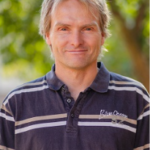Dublin City University
Extended name: Dublin City University
Country: Ireland
Website: www.dcu.ie/psychology/overview
Dublin City University (DCU) is Ireland’s most innovative university and it is consistently ranked among the top young universities globally. Its mission (2017-2022) is to transform lives and societies through education, research, innovation and engagement. DCU embraces innovative approaches to education and multidisciplinary degree programmes. It also encourages students to put their academic skills into practice in the work environment and through community engagement programmes. DCU is leading a global initiation on Age Friendly Universities (AFU) , is a found member of the Covenant for Demographic Change and a member of the European Innovation Partnership on Active and Healthy Ageing. The School of Psychology (SoP) has a thriving research community, led by internationally recognised and externally funded researchers with state-of-the-art research facilities and equipment. The School has an excellent track record in applied, multi-disciplinary and translational research with real-world impact on individual and societal wellbeing and positive behaviour change. The group is involved in several (inter)national research projects in the field of cognitive impairment and dementia including the JPND Actifcare Study and the National Dementia Registry project, and has student researchers examining young onset dementia, assistive technology and the use of virtual reality in relation to dementia. Visit our website for more information.
Team




Gruppo SPES

Extended name: Gruppo SPES
Country: Italy
Website: www.gruppospes.it
The SPES Group has more than 40 years of experience in private and public health services in Trentino, a small region located in the North of Italy. Since 2002, the organization growth to allow optimization in the management of all services related to the activities carried out in the residential care field. The Group’s residential services are characterized by more than 400 workers, as administrative staff, physicians, nurses, health care auxiliary staff, physiotherapists, psychologists and educators specialized in the health assistance of elderly and neurodegenerative diseases. Since 2017, it is part of an experimental project, called “Behavioral and constructivist management of neurodegenerative disorders”, conducted by Dr. Riello Marianna for the implementation of environment-friendly aspects, the clinical diagnosis of different forms of dementia and patients’ residual cognitive profile, the development of behavioral techniques for the management of dementia and training of health workers, as well as support for family members. The Group is also involved in several national research projects for the management of psychological symptoms induced by COVID-19 pandemic among the nursing care homes workers in the North of Italy with the collaboration of the University of Trento and Verona.
Team

Martin-Luther-Universität Halle-Wittenberg
Extended name: Martin Luther University Halle-Wittenberg
Country: Germany
Website: www.medizin.uni-halle.de/einrichtungen/institute/gesundheits-und-pflegewissenschaft
Martin Luther University Halle-Wittenberg (MLU) offers a wide range of academic subjects in the areas of humanities, social sciences, natural sciences and medicine. The oldest and largest university in Saxony-Anhalt was created in 1817 when the University of Wittenberg (founded in 1502) merged with Friedrichs University Halle (founded in 1694). Today the university has around 20,000 students and 340 professors. The Institute for Health and Nursing Sciences is part of the Medical Faculty. More than 40 researchers contribute to research projects dealing with various topics ranging from midwifery studies to geriatric care research. One research focus is the development and evaluation of complex interventions. Herein, intervention programmes for long-term care settings have been developed addressing different clinical features, for instance the malpractice of applying physical restraints and antipsychotics in residents with dementia. Dementia health care service research turned out as a core topic with projects dealing with access to dementia professional support, transition from home to nursing home, purposeful activities, and prevention of abuse.
Team







Universiteit Maastricht

Extended name: Maastricht University
Country: Netherlands
Website: www.maastrichtuniversity.nl – www.alzheimercentrumlimburg.nl
Maastricht University (UM) is the most international university in the Netherlands, and considered one of the best young universities in the world. The university stands out for its innovative education model, international character and multidisciplinary approach to research and education. One of the noticeable research institutes at the faculty of Health, Medicine and Life Sciences at the UM is the school for Mental Health and Neurosciences. MHeNS has its niche in the complex interplay between basic brain mechanisms, brain/neurocognitive function and psychopathology, with emphasis on prevalent psychiatric, neuropsychiatric and neurological conditions. The Alzheimer Center Limburg (ACL), within MHeNS, has extensive research and practical expertise in the field of dementia, early diagnostics and psychosocial interventions. The group has a large national and international network in the field of dementia, including the largest European network on psychosocial aspects in dementia, Interdem. Furthermore, the group is involved in several (inter)national research projects such as the JPND Actifcare study, but also educational- and training projects, including the ERASMUS+ project Sidecar and the Marie Curie training network DISTINCT. Visit the website for a full overview of projects.
Team











Social IT
Extended name: Social IT
Country: Italy
Website: www.socialit.it
Social IT is an innovative SME that develops ICT solutions for the management of social and health care services. Its mission is to realize cutting-edge technology projects with the aim of achieving the highest levels of efficiency and effectiveness in the care delivery process and to guarantee support through the use of ICT tools, putting at the center the end-users and their needs. Social IT highly specialized staff is committed to study, develop and provide new technologically advanced governance solutions to welfare organizations. Integrated software and innovative ICT tools are able to simplify and speed up the management of activities avoiding waste and error, saving time and resources, while improving the quality of services with tangible implications for citizens’ well-being. Social IT has developed an enduring expertise in providing the most adequate and high-quality solutions, fostering the efficiency of social and health care systems and bettering the lives of patients. Social IT has also large experience in EU projects, mainly in E+ and H2020 funding programmes, allowing to continue developing expertise through intense Research and Innovation activities and to develop ground-breaking ICT tools in support of fragile people (e.g., with intellectual disabilities, affected by autism, elderly with Alzheimer).
Team